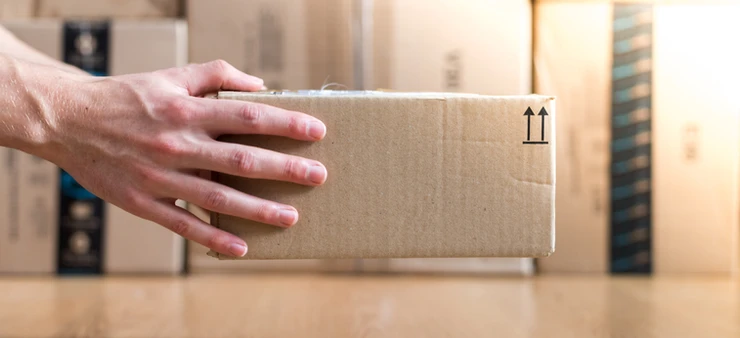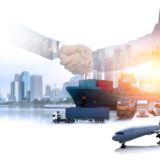
Have you wondered how to choose your international shipping methods? Perhaps you may need to review current shipping method. In this article, we try to help you by introducing two types of shipping methods. Then, we describe the details of different company types within a category. After reading this article, you will understand the big picture of international logistics and utilize for your day-to-day operations.
Forwarders are a logistics service provider to arrange delivery of your product by sea, air, or land. It charges min 2,000USD from our experiences. Traditional forwarders such as Yusen logistics are less known since they are B2B companies and often locally based as Yusen logistics is famous in Japanese market.
Couriers are so called door to door or international private delivery service providers. Typical couriers are well known such as FedEx and DHL since they deliver to individual consumers and often international. EMS is similar to couriers but it is public. The name EMS may change depending on countries.
To use forwarders or couriers/EMS, we can consider the followings;
- If a good to deliver is less than 30kg or smaller than 150,000c㎥, calculated by Hight (cm) x width (cm) x height (cm), you would consider EMS. EMS is traceable and the lowest cost. However, there are three obstacles to use EMS. First, EMS might not be available for some cities or regions of a country. Second, EMS might be less reliable depending on public postal service of shipping / arriving country. Third, EMS may take longer time to deliver than courier.
- IF 1. is not applicable, you would consider a courier. Cost might be up to 2,000USD depending on the weight or size. A courier may not be available for some cities or regions of country but another courier may be available.
- IF 2. is not applicable, you need to consider forwarder. There are many, many, many types of forwarders. Here is a pros and cons forwarder types.
- Subsidiaries of Carriers (Shipping Companies) Some forwarders are subsidiaries of Large Shipping Companies which own ships / trucks and storage to operate. These forwarders have branches all over the world. Their clients are often large corporations. Examples are Yusen Logistics and K-Line Logistics.
Pro : Extensive coverage areas (It is advantage for trilateral trade to ship to / ship from less popular sea route.)
Pro : Reliable service (Managers from the headquarter work at branches all over the world and supervise the quality of work.)
Pro : Well-Trained (Staff are well trained and make fewer mistakes so quality, cost, and delivery of shipping is easier to expect)
Con : Slow response (For new sea route or operations, it may take 6-8 weeks to ship.)
Con : Less price competitive for small volume (Allocation of ship prefer to parent carrier. Staff also are less hungry and aggressive to close the most price competitive deal, especially if you are small player.)
- Independent Forwarder Unlike subsidiary types, independent forwarders. These forwarders basically do not own ships / trucks or storage. Some of them are very specialized such as China-Japan sea route only. Examples are KWE and many forwarders including one-man forwarder.
Pro : profound knowledge and network in specific areas (often independent forwarders focus business areas with deep knowledge and local network)
Pro : Fast response (due to local knowledge, it is faster and smooth to ship)
Pro : Price competitive (Due to its business structure, staff are hungry and aggressive to find a price competitive carrier or the fastest shipment.)
Con : Limited coverage areas (Even large independent forwarder might not have as many branches as subsidiary types.)
Con : Less reliable service (forwarders cannot supervise oversea partners. shipper may need to give more detailed instructions to secure safety and quality of delivery)
Con : Staff dependability (often organizations are small so quality of the service depends on a staff’s experience. If the staff leaves, there is a risk of delay or problems of quality).
We use forwarders on daily basis. Our main business is find metal strips (steel, aluminum, copper) or machined metals (copper, and other alloys). If you have an issue about procurement of these metals, please contact us.

